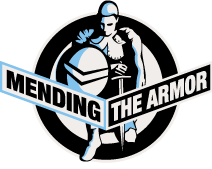The most difficult aspect a person suffering from pornography addiction can face is shame and guilt — two powerful emotions that not only corrupt an individual’s self-confidence, but also make it nearly impossible for them to fix the addiction at hand.
On the website RowboatandMarbles.org, an author describes the problem associated with most addicts, particularly LDS men:
“Three short sentences are killing Mormon men: “This is my problem to deal with. I created this mess, so it’s up to me to clean it up. Nobody else has to get involved.” As far as addiction is concerned, I don’t think the problem is that Mormon men are refusing to accept personal responsibility. Quite the opposite, I believe nearly every man in the Church currently suffering in silence with his sex and pornography addiction is hiding behind the notion that because he needs to be a man about this and accept personal responsibility, he needs to (or gets to) take care of this on his own.”
Indeed, such a thought process comes about due to a sense of guilt. Guilt, by definition, is a feeling of remorse for an offense, crime, or wrongdoing, whether real or imagined. Those associated with the Church of Jesus Christ of Latter-day Saints will attest to the several talks by church leaders declaring pornography as an egregious and wicked sin. In turn, most members of the church will feel a sense of guilt because of their actions and then, in turn, refuse to confront the problem for fear of being cast out — imperfections will be revealed, followed by embarrassment.
Shame digs even deeper into a person’s soul, drowning them in feelings of worthlessness. As stated in “Breaking Free,” “Shame can lead an individual to believe that they can never be worthy to receive forgiveness from God, others and themselves.”
Obviously, church leaders have tried to counter this line of thinking. In an October 2006 session of General Conference, Dallin H. Oaks explained:
“Many [people] carry heavy burdens. Some have lost a loved one to death or care for one who is disabled. Some have been wounded by divorce. Others yearn for an eternal marriage. Some are caught in the grip of addictive substances or practices like alcohol, tobacco, drugs, or pornography. Others have crippling physical or mental impairments. Some are challenged by same-gender attraction. Some have terrible feelings of depression or inadequacy. In one way or another, many are heavy laden … To each of us our Savior gives this loving invitation: ‘Come unto me, all ye that labour and are heavy laden, and I will give you rest. Take my yoke upon you, and learn of me; for I am meek and lowly in heart: and ye shall find rest unto your souls. For my yoke is easy, and my burden is light (Matthew 11:28–30).’”
Pornography and sexual addiction are difficult problems to overcome, but with the Lord’s help an addict can find redemption and peace. Don’t allow shame and guilt to keep you from seeking help from pornography addiction. Please, speak with a Bishop, or counselor. You are not alone in this fight, and cannot fight alone. As the Savior instructed:
“Come unto me, and ye shall find rest unto your souls” (Matthew 11:28–29).

